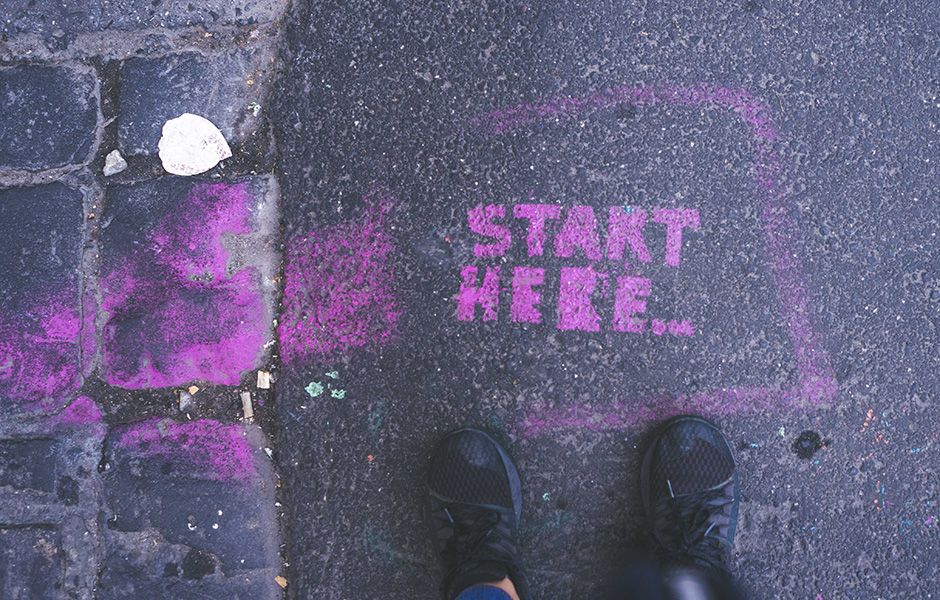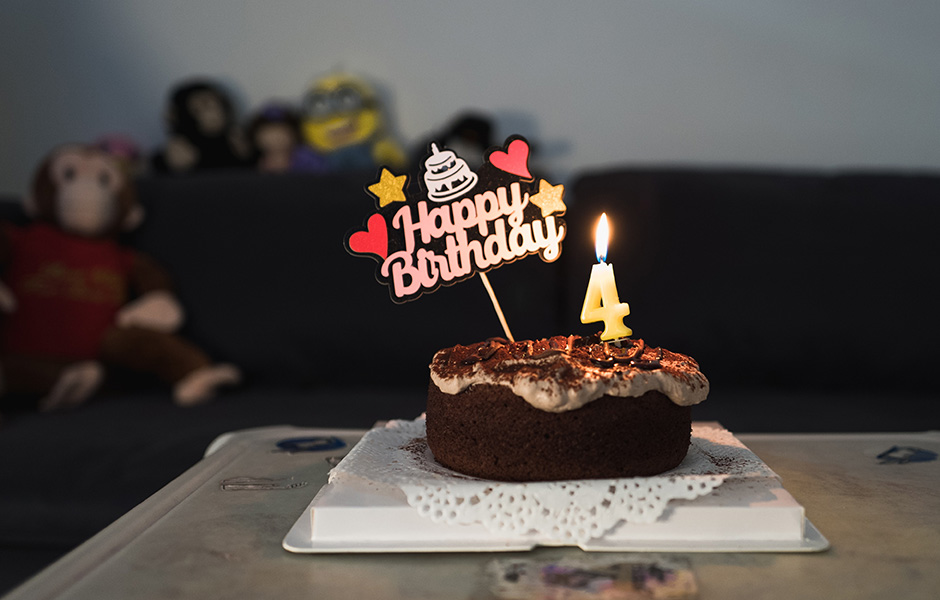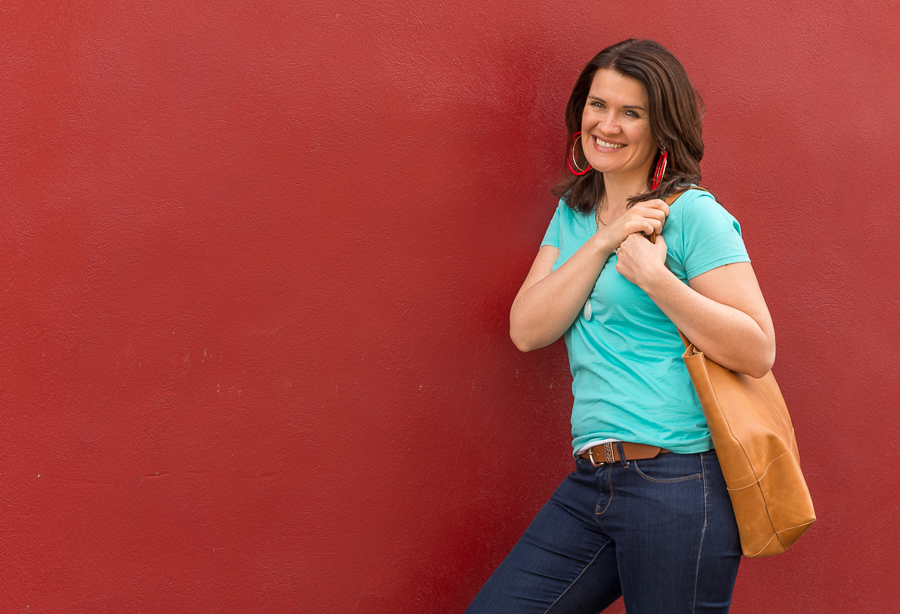One day, when I was a youth pastor, one of my students came into my office just to show me her tattoo. She closed the door, and then lifted her shirt up just enough to show me a bright and beautiful cherry tree stretching across her left ribs and down her side. It was new. There was still a little red around the edges, but you could tell she felt very proud of it.
Then, a few years later, I sat at a Panera with another student. I listened as she described the many colorful tattoos that flowed down her right arm. They didn’t yet make a sleeve, but that was her goal. She said her body was her canvas, and she wanted to look on the outside how she felt on the inside.
Now, I am not a fan of needles. Also, when I went to India, some girls from a school I volunteered at, drew a beautiful flower on the palm of my hand in henna. Though it only lasted two weeks—and I really liked it—I found myself trying to scrub it off by the end of the first week. For some reason, I can’t handle anything being on my skin for too long.
In other words, tattoos aren’t my thing. And yet, I understand how my two students felt in getting their tattoos. I think, in a positive, identity declaring way that:
All of us want to be marked by something.
We want to be known. We want to be remembered. We want to somehow have who we are on the inside be seen by those who are on the outside. Only in adolescence, this desire at times gets crowded out by another powerful longing—the desire to be liked. When this happens, we begin to give others control over what will mark us.
Though how the world meets, knows, and will remember us, should only be up to us and God, we often give others more influence over this than we should. If we have good people around us, it might not be so bad. But because we all are imperfect, allowing others to mark us can leave us with scars. I know, because I am still healing from a few.
One such scar began for me in high school. As an eighth grader (our school was 8th-12th grade), I dated a senior. It didn’t last too long, but it did give me a group of upperclassmen friends. Two of them were these beautiful and kind sisters who everyone seemed to like. In fact, both of them were voted “Best Personality,” for their senior superlatives. And I wanted to be like them. I had figured out early on that I wasn’t going to get “Most Likely to Succeed,” or “Most Athletic,” but I could be kind. I thought, Jesus calls us love as He has loved us, so being “Best Personality,” was kind of like being like Him, right?
Only, I didn’t realize loving others was not about being the one other’s loved. Love isn’t making others happy. It isn’t about making people like us by doing or acting the way we think they want us to act. But I thought it was, and it messed me up. It lead me into some unhealthy friendships and it created a pattern in my life in which I let others decide who I was. No longer was I able to creatively express who I was on the inside because I was too busy looking to everyone else to tell me.
Senior year, I was voted “Best Personality,” and this title marked me well into my twenties. Though it certainly helped me in some areas of my life, it is where it held me back from fully being who God has created me to be, that haunts me the most. If I am honest, the urge to please those around me is still something I battle regularly.
Some of the things that mark our lives the longest, are ones we don’t even realize we are choosing or allowing. So focused on the immediate results of our decisions, we miss or overlook the longterm affects. For this reason, we must embrace our responsibility to decide what marks us. We have to learn how to become more proactive in how we live and express ourselves in this world. And we must rely less on those around us, and instead ask God to show us who He has created us to be. If we don’t, we—and the world—may miss out on knowing who we really are.
Where and how have you been marked?
Who have you allowed to mark you?
Would you like more from Melissaschlies.com delivered to your inbox?
If so, subscribe here.












I love this idea of wanting to be marked. I had never thought of it. And as Christians, we ARE marked–sealed by the Holy Spirit. I always imagine I have something right on my forehead that no one can see in the physical world but that is blazing in the spiritual world. Thank you for this!
Heather Bock
http://www.glimpsesofjesus.com
Thanks for reading Heather–and for the image of being marked on our forehead. We are sealed in Him.
This is a really nice piece. I myself have several tattoos, I’ll never forget the very first one I got (a small cross) and it came during a season of spiritual growth in my early 20s. I remember vividly wanting to mark my body as a visual to people. I had a vision of being found dead, with nothing at all to identify me… what I wanted to be known and remembered for… even by people who had no idea who I was. So the cross tattoo was decided upon.
I have several others, all of which have been thought through thoroughly (type that 5 times fast!) and I don’t regret a single one.
But to your main point, what a poignant reminder of those things or people that ‘mark’ us… for good or ill. We don’t need the permanent ink on the outside, to be just as permanently scarred. And how lovely that we are marked eternally by the Holy Spirit- whether it is ‘seen’ or not.. it’s there and it’s forever!
Thanks for reading and sharing Bethany!I think we all want to be known and remembered–and yet God is saying to us all along that He will never forget us and that we can be His.
I related to this SO MUCH. Thank you so much for putting this to words!
Thanks for reading Amy!
I totally relate to this. I did something along the same lines, but I wanted to be in control. I’m still healing from those scars. How incredible that Jesus can mark us, and cover those scars. But usually, instead of covering them, he exposes them and uses them for his glory.
Only He can bring something good out of our scars! Thanks for reading Keagan!